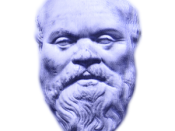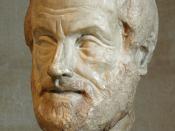CMN 101 Notes Dec 1st
Rhetoric
Oral Persuasion
Aristotle's definition: "an ability, in each particular case, to see the available means of persuasion"
98% interpretive
Aristotle distinguishes 5 parts or divisions of the study of rhetoric
1. invention: discovery of convincing arguments
2. arrangement: organizing material for best impact
3. style: selection of appropriate language
4. delivery: coordinating voice and gestures
5. memory: mastery and rehearsal of content
Narrative Paradigm
Main Idea: humans are storytellers and we are more persuaded by a good story than a good argument
Fisher makes an overt departure from rational world paradigm (logic and science are the primary ways of knowing - of discovering and understanding our world)
Assumptions
1. humans are story tellers
a. narratives are universal- found in all cultures and time periods
2. people make decisions about which stories to accept and which to reject on the basis of what makes sense to them, or good reasons
3. narrative rationality (logic) is affected by history, biography, culture and character
4. people believe stories insofar as the stories seem internally consistent and truthful
5. the world is a set of stories and as we choose among them, we experience life differently, allowing us to re-create our lives
key concept:
Narration: any verbal and nonverbal account with a sequence of events to which listeners assign a meaning.
"When I use the term narrations, I do not mean a fictive composition whose propositions may be true or false and have no necessary relationship to the message of that composition. By narration I mean symbolic actions-words and or deeds that have sequence and meaning for those who live, create, or interpret them"
ALL COMMUNICATION IS NARRATIVE
Narrative rationality: a standard for judging which stories to believe and which to disregard
It operates on the basis of...


